Iran warns IAEA: Spiteful reports will undermine constructive cooperation
Iran has rejected a complaint by the UN nuclear watchdog that it was denied access to a nuclear site in violation of an understanding reached earlier this month, warning the agency that “wrong and spiteful” reports would disrupt constructive cooperation between the two sides.
“It is imperative that officials with the International Atomic Energy Agency (IAEA) avoid taking political stances that seek certain purposes and stop [presenting] wrong and spiteful reports in order not to damage the constructive process created following recent interactions between Iran and the IAEA,” Behrouz Kamalvandi, spokesman of the Atomic Energy Agency of Iran (AEOI), said on Monday.
In a statement on Sunday, IAEA Director General Rafael Grossi claimed that Iran was failing to fully comply with a joint statement issued by the two sides on September 12 by refusing to allow the agency access to the TESA Karaj Complex, a centrifuge component manufacturing workshop in north-central Iran.
According to the joint statement issued following talks between the IAEA chief and AEOI Head Mohammad Eslami in Tehran on September 12, Iran agreed to allow the UN nuclear watchdog to service surveillance equipment installed at Iranian nuclear sites.
“The IAEA’s inspectors are permitted to service the identified equipment and replace their storage media, which will be kept under the joint IAEA and AEOI seals in the Islamic Republic of Iran. The way and the timing are agreed by the two sides,” the statement said.
Kamalvandi, however, explained that the joint statement has specified that the IAEA was to be allowed access to “identified equipment” for “service and replacing memory cards,” except for the Karaj complex.
Grossi and his colleagues well know that the joint statement does not “apply to the surveillance equipment (cameras) of the Karaj complex because it is still undergoing security investigations” as a result of the July act of sabotage against it, the AEOI spokesperson emphasized.
In reaction to the IAEA chief’s Sunday report, Kamalvandi also said Iran has sent a letter to the agency to protest the “unconstructive” move.
In a series of tweets on Monday, Iran’s IAEA envoy, Kazem Gharibabadi, criticized the agency for staying silent on the “terrorist” attacks and not issuing a statement even for the threat they posed to its own inspectors and equipment.
Separately in a tweet thread on Sunday, Gharibabadi had decried the UN nuclear agency for accusing the Islamic Republic of non-cooperation with the organization.
Therefore, DG's report on Sep 26 isn't accurate and goes beyond the agreed terms of the JS. Any decision taken by Iran on monitoring equipment is only based on political rather than legal considerations and the Agency cannot and should not consider it as one of its entitlements.4
— Gharibabadi (@Gharibabadi) September 26, 2021
In one tweet, he said the IAEA chief’s report was not accurate and goes beyond the agreed terms of the joint statement.
Grossi's report came as the Iranian nuclear chief has reiterated the country’s full and constant cooperation with the IAEA, urging the UN nuclear agency to remain independent and impartial and avoid politically-motivated decisions.
"Iran has always cooperated with the Agency, at the same time, it is necessary that the IAEA avoids playing politics and maintains its independence, impartiality and professionalism," Eslami said in an address to the 65th regular session of the IAEA General Conference in the Austrian capital of Vienna on September 20.
EU urges Iran to immediately allow IAEA access
As Iran insists that the TESA Karaj Complex is exempt from the recent agreement with the IAEA, the European Union on Monday expressed its "deepest concern" over the issue and urged Tehran to immediately allow the agency’s inspectors to access the site.
The EU said it urged Iran to allow access "without any further delay” during a meeting of the IAEA Board of Governors in Vienna.
The IAEA's latest report comes amid stalled negotiations between Iran and the remaining parties to a multilateral 2015 nuclear agreement, officially known as the Joint Comprehensive Plan of Action (JCPOA), to revive the landmark agreement, which was abandoned by the US in 2018.
The US, under former president Donald Trump, unilaterally withdrew from the deal and reinstated its harsh sanctions on the Islamic Republic, although Tehran had been fully compliant with the deal.
In a Monday tweet, Stephan Klement, head of the EU delegation to the international organizations in Vienna, said the bloc welcomed continued efforts by the IAEA and its chief to ensure continuity of knowledge on Iran’s nuclear program, stressing the importance of immediately resuming the Vienna talks at the earliest.
#JCPOA: EU welcomes continued efforts by @rafaelmgrossi @iaeaorg to ensure continuity of knowledge on Iran’s nuclear programme. EU urges #Iran to allow IAEA inspectors to access the Karaj workshop without delay. Important #ViennaTalks resume asap from where we left off on 20 June
— Stephan Klement 🇪🇺 (@Amb_Klement_EU) September 27, 2021
“EU urges #Iran to allow IAEA inspectors to access the Karaj workshop without delay. Important #ViennaTalks resume asap from where we left off on 20 June,” Klement tweeted.
US says Iran should grant inspectors access or face action at IAEA
Meanwhile, in a statement on Monday, the United States said Iran must stop denying the IAEA access to the Karaj complex or face diplomatic retaliation at the Board of Governors within days.
"We are deeply troubled by Iran's refusal to provide the IAEA with the needed access to service its monitoring equipment, as was agreed in the September 12 Joint Statement between the IAEA and Iran," read the US statement to the IAEA's 35-nation Board of Governors.
In early April, Iran and the remaining parties to the JCPOA began to hold talks in Vienna after the Joe Biden administration voiced a willingness to rejoin the nuclear agreement and remove the draconian sanctions.
Since the beginning of the Vienna talks, Tehran has argued that the US—as the party that violated the JCPOA—needs to take the first step by returning to full compliance with the agreement. Tehran also says it will resume all of its nuclear commitments under the deal only after the US removes all the sanctions in a practical and verifiable way.
The negotiations were paused soon after the victory of Ebrahim Raeisi in Iran’s June 18 presidential election.
Do not expect cooperation while you keep silent on Israel's terrorism: Iran tells IAEA, E3
Gharibabadi, Iran’s ambassador to international organizations in Vienna, on Monday criticized the IAEA and the European troika (E3) for remaining silent on the Israeli regime’s terrorist activities while calling on Tehran to continue its cooperation with the UN nuclear agency.
“The IAEA, the United States and the three European countries (Britain, France and Germany) should know that they cannot remain silent in the face of the Israeli regime's terrorist acts and [refrain from] stopping them while demanding the continuation of surveillance and presence of the IAEA’s cameras in facilities hit by terrorist sabotage,” Gharibabadi said.
In reaction to statements issued by the US and the E3, he added that Iran should not be expected to reinstall the IAEA’s surveillance equipment damaged by Israel while the regime gets away with it and no action is taken on the part of the agency and those countries criticizing Iran.
The Iranian diplomat emphasized that the recent agreement reached between Tehran and the IAEA has been fully implemented within the agreed time, saying, “The Islamic Republic of Iran will monitor the response to its goodwill and will take due action at each stage.”
In a joint statement delivered to the Board of Governors on Monday, the E3 thanked Grossi’s Sunday report on the IAEA’s ability to conduct verification and monitoring activities of Iran’s nuclear-related commitments.
The trio, however, claimed that Iran has not fully implemented the agreement it reached with the IAEA on September 12 and expressed their profound concern in this regard.
They said Iran’s alleged lack of full implementation of the agreement has “forced” the IAEA chief to “issue a report on non-cooperation after only two weeks.”
“If Iran does not allow the IAEA to replace cameras at the Karaj centrifuge component manufacturing workshop, the IAEA will lose the ability to re-establish continuity of knowledge in the future,” the three European signatories to the JCPOA added.
They urged Iran to “immediately” provide the IAEA access to the Karaj complex and “allow for the replacement of cameras there.”
Azerbaijan president meets top Israeli lobby group leadership during visit to US
Israeli settlers kill 19-year-old Palestinian man in West Bank raid
Israel installed, managed security system at Barak-Epstein New York flat: Report
Iran deplores Israel’s new land grab scheme in West Bank
VIDEO | Vienna holds conference dubbed 'Iranian-Islamic Civilization, Identity and Historical Splendor'
VIDEO | Press TV's news headlines
Journalist Tucker Carlson says he was detained in occupied territories after interview with US amb.
VIDEO | Is there any hope for Russia-Germany relations?


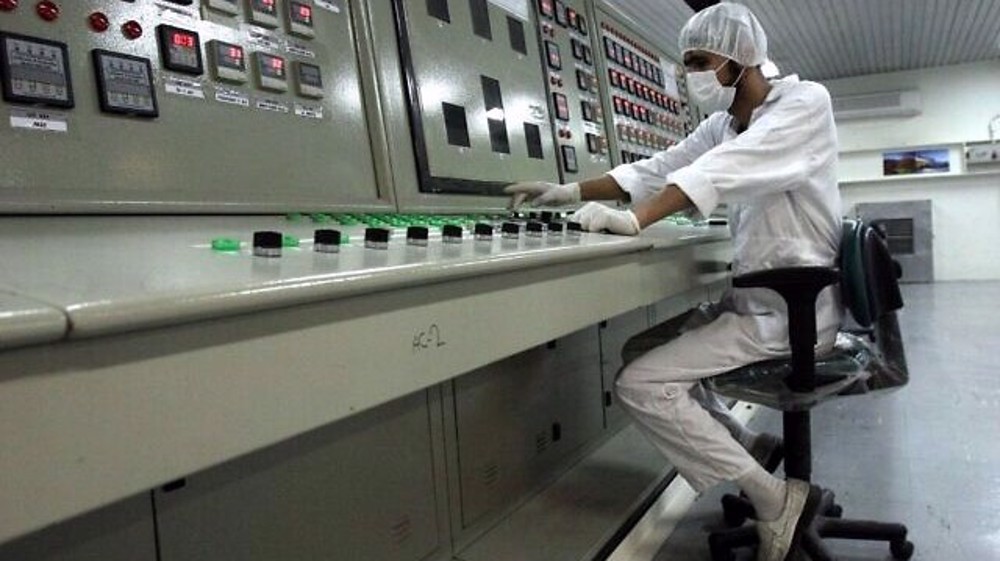
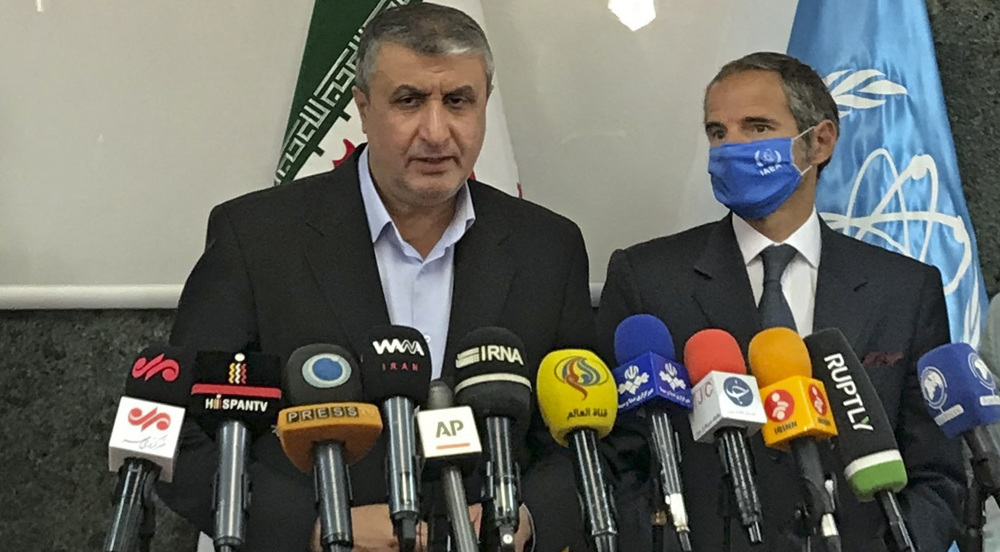
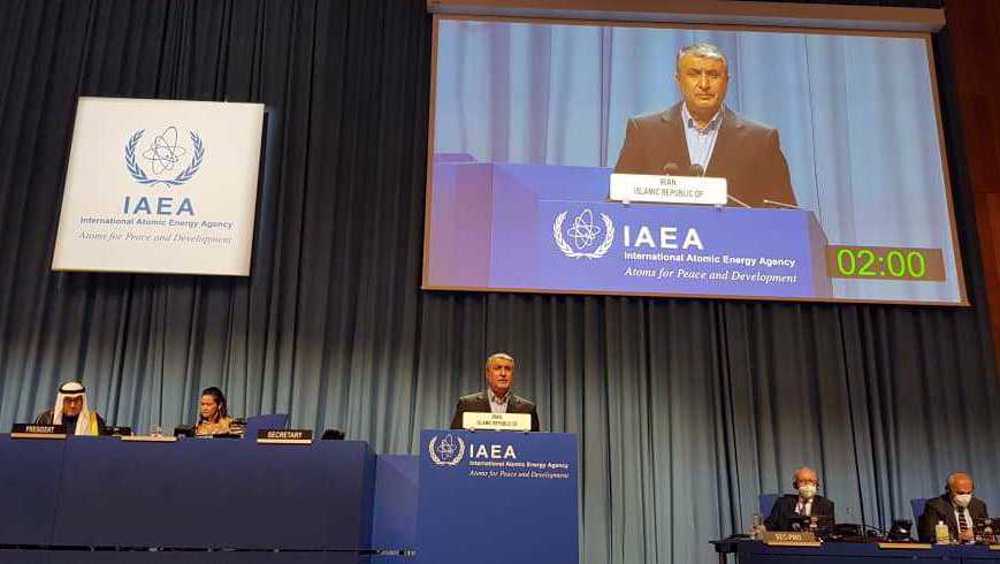
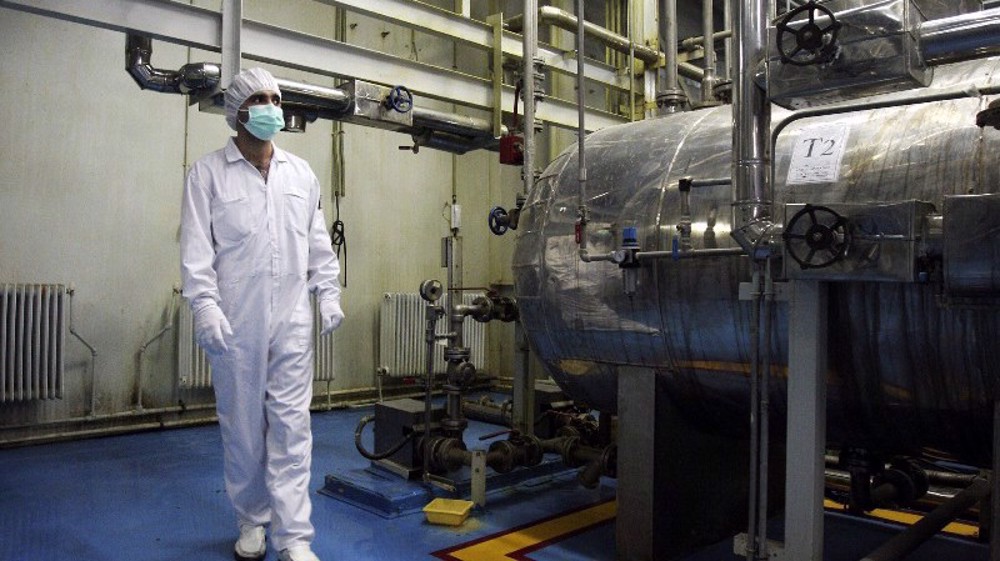
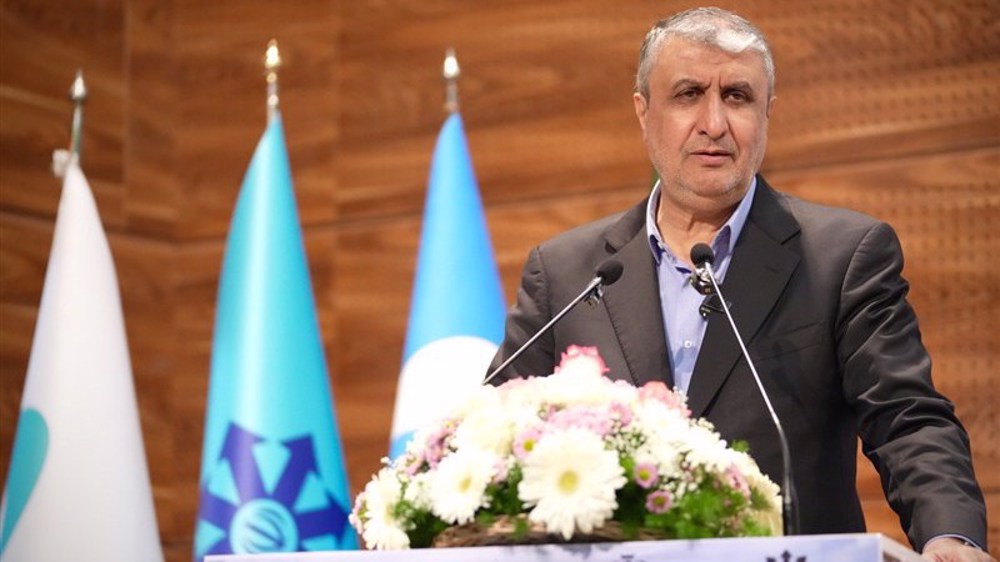
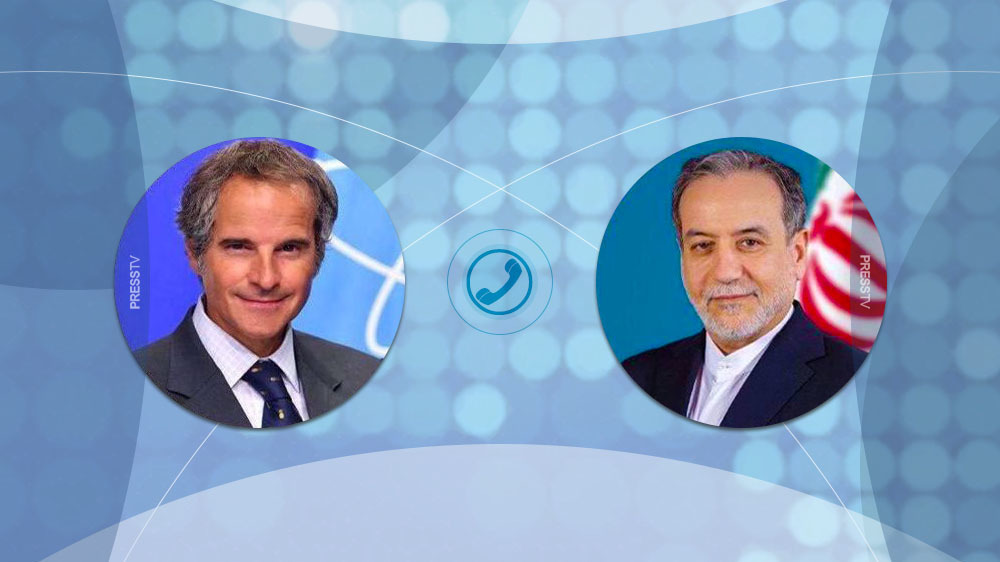
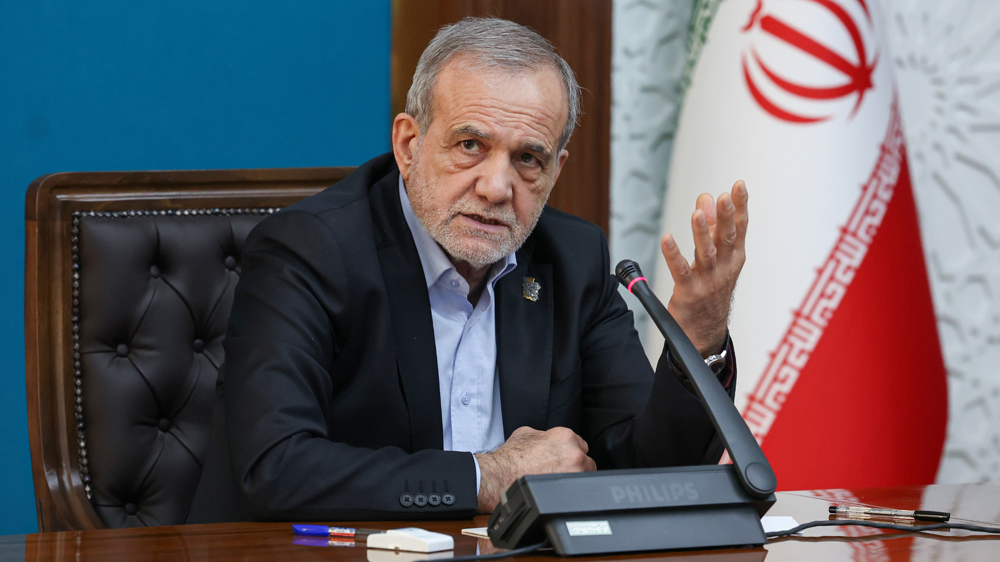




 This makes it easy to access the Press TV website
This makes it easy to access the Press TV website